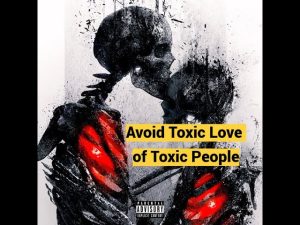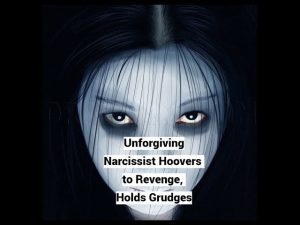Narcissist’s Fantasy Not About YOU, Psychopath’s Is (Collateral Victimhood)
1. Introduction and Context
- Speaker has moved from Paris residency to North Macedonia and plans to discuss narcissist fantasy, clarifying misconceptions caused by self-styled experts online. [00:00]
2. Differentiating Psychopathic and Narcissist Fantasies
- Psychopathic fantasy centers on the victim, catering to their hopes, dreams, and expectations, essentially playing a role to gratify the victim.
- Narcissist fantasy is self-centered, focusing solely on gratifying the narcissist’s needs and maintaining an inflated self-concept.
- Key contrast: Psychopath’s fantasy is about the victim, narcissist’s fantasy is about themselves. [00:20]
3. Understanding Fantasy and Reality in Narcissism
- Narcissists blur the line between fantasy and reality, especially regarding their self-concept.
- Distinction made between semantic (skills, self-efficacy) and episodic memory (autobiographical, identity formation).
- Narcissists perform well semantically but fail episodically, leading to identity disturbances similar to borderline personality disorder.
- Narcissists operate efficiently in skills but lack authentic self-awareness and emotional reality. [03:30]
4. Nature of Narcissistic Fantasy
- Pathological narcissism is seen as a fantasy maladaptation, relying on fantasy as a coping mechanism to avoid adapting to reality.
- Narcissists create a paracosm (an alternative reality) to shield themselves from interaction with challenging external circumstances.
- Fantasies are delusional and the narcissist suffers from collapse of reality testing. [07:30]
5. Characteristics of Delusions and Fantasy
- Delusions defined as living a lie that feels real, where the person is unable to distinguish fantasy from reality.
- Fantasy in narcissism is based on misinterpreted, rearranged facts rather than outright rejection of facts.
- This leads to impaired reality testing and self-endangerment by making poor decisions. [10:00]
6. Narcissists’ Inefficacy vs Psychopath’s Efficacy
- Narcissists are inefficient, wasteful, and tend to alienate others, often failing in their goals.
- Psychopaths are efficacious and goal-oriented, which contrasts sharply with narcissists who are delusional and prone to failure.
- Many narcissists eventually become covert, isolated, and self-supplying to cope with repeated failures. [12:30]
7. Self-Supply as a Fantasy Defense
- Narcissistic self-supply is a fantasy where the narcissist elevates themselves to godlike status with omnipotence and omniscience.
- This self-supply supports an inflated and unsustainable self-esteem, acting as a significant fantasy defense mechanism. [15:45]
8. Narcissistic Mortification and Dissociation
- When narcissists experience reality falsifying their fantasy (motification), they cannot cope and dissociate.
- Dissociation involves denial, repression, erasure of reality, and leads to borderline personality organization features such as emotion dysregulation and self-harm ideation.
- Describes three states of narcissism: direct contact with reality, dissociation, and fantasy (the prevailing state). [18:00]
9. Defense Mechanisms and Aggression
- Narcissists aggressively attempt to reshape reality to fit their fantasy, often blaming others or external forces when they fail.
- This includes coercion to force environment and people to align with their fantasy, demonstrating their protective approach to their internal fantasy ecosystem. [22:30]
10. Collateral Victimhood and Victim Role
- The narcissist’s shared fantasy has nothing to do with the victim’s needs; the victim is collateral damage, instantly replaceable and manipulated to support the narcissist’s grandiosity.
- Contrast with psychopathic fantasy which centers the victim and caters to their needs.
- Narcissists expect the victim to affirm their grandiose self-perception, demanding roles of submission and affirmation from victims. [25:15]
11. Activation of Shared Fantasy and Multiple Fantasies
- Narcissistic shared fantasies are triggered in interpersonal relationships, where narcissists induct others into their fantasy as participants.
- Multiple types of fantasies exist in narcissism beyond interpersonal, including self-supply and collective fantasies in groups or organizations.
- Narcissists invest significant energy in sustaining these fantasies, believing them more real than objective reality. [29:00]
12. Common Misconceptions by Self-Styled Experts
- Most experts confuse narcissistic fantasies with psychopathic fantasies, failing to grasp that narcissists truly believe their fantasies and are not intentionally deceiving others.
- Narcissists invite victims knowingly into their fantasy worlds, which are described as paracosms or movie-like realities. [32:00]
13. Summary of Narcissistic vs Psychopathic Fantasies
- Narcissistic fantasy is therapeutic and focused on the narcissist’s grandiosity and maintaining an idealized world.
- Psychopathic fantasy is capitalistic, pragmatically focused on achieving victims’ desires and goals.
- The narcissist fantasy invites others to a utopia where happiness prevails; the psychopath’s fantasy appeals with promises of fulfilling personal desires. [35:30]
All timestamps are relative to the start of the transcript.






